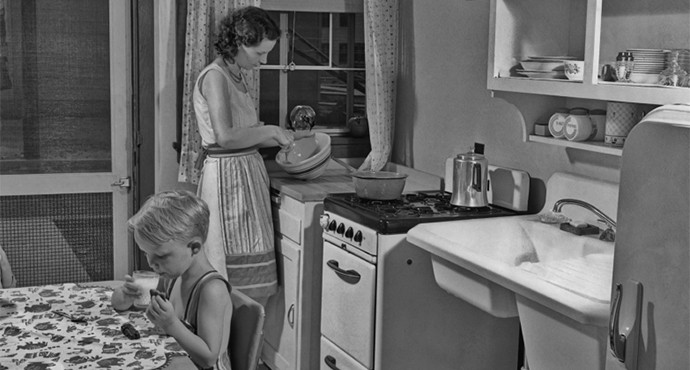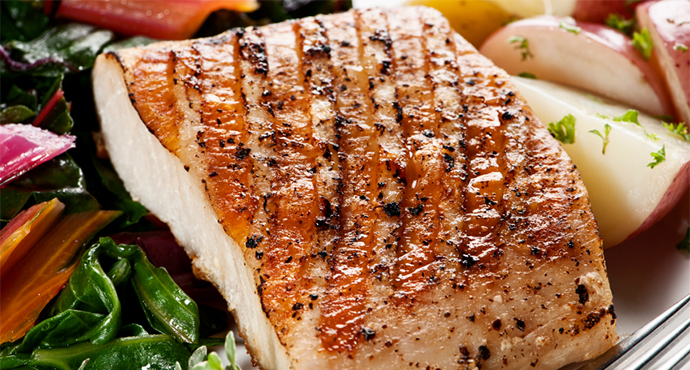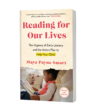I’m on a quest to learn to cook this year, but that doesn’t mean I don’t have doubts about the whole thing.
I want to cook at home to save money, be healthy and create more occasions for my family to gather. I also want to use home-cooked meals to teach my daughter about personal wellbeing, the environment and their interconnectedness.
I do not want to be (or even pretend on the internet to be) a domestic goddess. I just don’t buy the cooking nostalgia served up by food writers and pundits who long for make-believe good old days. You know, the ones when smiling women with little economic and educational opportunity enjoyed spending their days in hot, confined spaces whipping up wholesome feasts.
I can’t mine my history for those days because they didn’t exist. And while I understand Michael Pollan’s point that Go-Gurt has major shortcomings, I bristle when he calls for us to eat what our great-great-grandmothers would recognize as food. It’s impossible for me to be wistful for the diet of cornmeal, salt herring and pork that slaves like my foremothers subsisted on.
Fast-forward to the 1950s and 60s. Despite the happy housewife imagery it conjures up for many, cooking had yet to become a rewarding pastime in my family. It was still straight-up work.
Both of my grandmothers labored as domestics for years. My mom’s mom eventually rose two ladder rungs to cook at a daycare center and run an elementary school kitchen. At home, cooking was just something she did like washing clothes or tending to the house. “It wasn’t like food was a joy,” my mom recalls. “It was a necessity.”
What was a joy for my maternal grandmother? Ensuring that her only child had the schooling and connections she needed in order to toil in a better-compensated field. She dreamed her daughter would become a teacher or a nurse, the two positions that paid black women “good money” in Louisville, Kentucky, at the time.
Home-cooking for this grandmother was not spiritual or inspiring or even fulfilling. It didn’t register as a sign of humanity, womanhood or connection to the earth as some contend it is today. It was about surviving, not thriving.
These are dramatic examples but, tellingly, many of the more privileged and revered aproned housewives of old didn’t enjoy the chore either. Thus the canned soup and hot dogs in recipes of the day and the popularity of “The Can-Opener Cookbook” (1951) and “The I Hate to Cook Book” (1960). (Read Emily Matchar’s Homeward Bound: Why Women Are Embracing the New Domesiticity for a great discussion of this.)

My mom grew up to pursue a doctorate in psychology and have a career in higher education. She didn’t give meal planning much thought until she got married in the late 1970s. “My expectations increased, but my skill didn’t,” she says.
Indeed, I was reared in the Midwest on a diet of orange pop, Stouffer’s lasagna and salad in a bag. My mom’s unspoken kitchen mantra was “I’d rather be reading.” Today she enjoys watching the Food Network and offering tweaks for my dinner experiments. But in my youth, she never gave me any indication that cooking was my concern. She was too busy grooming me for Big Things.
“I figured cooking’s not difficult and you were smart so you would learn to cook when you needed to,” she explains.
Recently, my husband (who prepares breakfast for our daughter) mentioned in passing that he never thought of cooking as his role. I countered with a laugh that I never thought it was mine either. Welcome to parenthood.
Well, here goes…
Questions: Is cooking your calling? A chore? Or, somewhere in between? How do you get good food on the table?
Please scroll down to post your comments below. Any suggestions are greatly appreciated! 🙂
Related Reads
This Year I Learn to Cook (via Maya Smart)
Why Every Entrepreneur Should Learn to Cook This Year (via Forbes)


